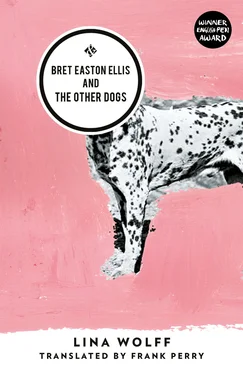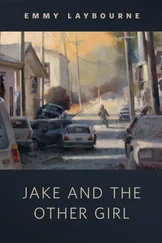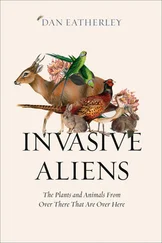Not that Valentino’s story was the first I had heard of Alba Cambó. Our initial impression of her would be based almost entirely on what we read in the magazine Semejanzas . The same day she moved in below us (we realised that someone had come to stay because the broken pots and abandoned crowbar that had lain down there for as long as we could remember were suddenly gone and in their place were two individuals having a conversation while the aroma of exotic food found its way up to us), Mum went to the market to find out what was going on. No one knew anything at the market that afternoon apart from the fact that there had been a moving van in the street the day before, and that things had been unloaded and that a woman who must have been Alba Cambó had stood there keeping a watchful eye on the moving men as they handled her boxes. This was not enough for Mum, however, and she went down to the market again the next morning. A few hours later she came home with the latest issue of Semejanzas , which she had walked all the way up to Fnac near Pla Catalunya to buy. We leafed through the glossy pages. First there was a feature about a man who devoted himself to the illegal fishing of mussels in the estuary outside Vigo, followed by an interview with a prominent writer from Madrid whose name I can no longer remember but whose photo etched itself deeply into my brain because of a minor detail in the background: the muzzle of a pistol peering out from a bookshelf. Then there it was, the piece written by our new neighbour. A picture was included of a woman smiling and looking at someone outside the image, and there couldn’t be the slightest doubt it was her. Mum read her short story aloud. Nineteen pages long, it was about an extremely lonely man in the district of Poblenou. The man had no name in the short story but was referred to simply as ‘the man’. He was described as rather short with thinning hair and large, slightly staring eyes that looked enormously unhappy. The man’s problem was that he had been alone for so long that he had slowly but surely begun to develop a social phobia. Initially the phobia was nothing more than a vague reluctance to engage with other people, a reluctance that was manifested for the most part by his staying away from meetings with people he knew and regretfully declining invitations to family gatherings. But the problem rapidly developed into something else, something that could no longer be ignored and that imposed severe limitations on the way he lived his life. The clearest evidence that the man in the short story actually suffered from a phobia and not just from a common or garden aversion to the world around him was that he was no longer capable of eating without embarrassment in the company of other people. His hands shook so much that the food dropped off his fork and the fork would sometimes then fall out of his hands and onto the plate, landing with what sounded to him like a deafening clatter. His embarrassment was immediately evident in the colour of his face. Sometimes the man would even blush when there was not the slightest reason to do so, which meant that other people’s eyes were drawn to him, making both the situation and his phobia worse. His nearest and dearest were most concerned. Finally his daughter arranged a surprise party for him. His sixtieth birthday was coming up and his daughter thought this would be a good occasion to gather friends and family together. Perhaps a large social gathering might also alleviate some of her father’s phobia? She had heard that exposure to the objects that trigger phobias was always a positive thing. The daughter managed to get a group of about forty people together. They were all standing there in the dark in the hall of the man’s flat in Poblenou one evening as he made his way home from work. The man opened the door in the same slow and effortful way he always did. The forty people could hear the key being turned in the lock, the man putting down his briefcase on the floor in the hall and closing the door behind him. For a second or two there was absolute silence. You could have heard a pin drop in the darkness, the daughter would say a few pages later in the short story. All the guests held their breath while they waited for a signal from the daughter to burst into a chorus of congratulations, to the accompaniment of the light from the ceiling lamp which had been wreathed in coloured paper along with streamers and confetti that would be thrown up into the air to rain down over him. But just before the daughter could give them the green light, the socially phobic man farted. He was easing the pressure in his stomach, a pressure that had been building up throughout the day at the featureless office the man worked at, a pressure that Cambó described as a kind of internal and repressed rebellion against the beige-coloured walls and the white, rather damp faces that are typical of many fat people, people who never spend time in the open air, and people who eat nothing but sausage, if such people exist, that is. The sound that came out of the man was lengthy and sustained. It echoed between the walls and was drawn out into a kind of lamentation; it was then transformed into the cry that issues from the gullet of a bird one evening on some isolated mountain lake, and was finally followed by a sigh of relief. The daughter stood there paralysed in the darkness. The whole thing fell apart. The signal for the festivities to begin was not given despite the fact that the noises of celebration might have drowned out bodily sounds. A smell of sewage slowly spread through the hall. After several more seconds (Cambó managed to make the duration of these seconds appear to be an eternity) the daughter gave the go-ahead, and the guests began their gaudy congratulations. But the congratulations were only half-hearted. Derailed, embarrassed congratulations, congratulations characterised by shame, embarrassment and sorrow. Some ill-concealed giggling could also be heard from the youngest female members of the family. The eyes of the guests kept shifting about and a murmuring started up although the voices doing the murmuring sounded uncertain. Bright red, the man stood on the threshold with his briefcase pressed against his chest like armour. He asked his daughter to gather together all the guests and get them to leave his flat immediately. He refused to see them and went into the toilet where he locked the door and sat absolutely motionless on the toilet seat until he heard the door close behind the last of the guests. The story ended one week later with the daughter finding her father hanging from a beam in the sitting room, rigid in death although wearing newly polished shoes, a ludicrous attention to detail that would be his last.
It was stated that Alba Cambó had won a prize for the short story and that the jury had referred to ‘shame’, ‘loneliness’ and ‘the predicament of the modern man’ in their verdict. The prize was worth €1,000, and she said in an interview in the same issue that she was going to use the money to construct a garden on her terrace, which she seemed to have put off for some time as during the coming months we saw no sign of a garden or of any increase in the number of pots down there.
A month or two after we had read the story of a lonely man, another short story written by Alba Cambó was published in the same periodical. Mum bought this one as well. It was about a little boy who had been kidnapped from Majadahonda, a residential district for the better-off on the outskirts of Madrid. The search for the boy went on for days and weeks, but he was never found. Finally a call came from the man who had stolen the boy. The family was asked to pay a ransom. A week or two later the kidnapper was found in a rubbish bag. He had been brutally murdered; his arms had been cut off and, according to the autopsy that had been carried out, they had been cut off while he was still alive. He had also been subjected to sexual abuse. The boy was never found. This was a peculiar short story with rather a lot of loose ends — why, for example, had the man made his presence known and why should the reader believe that it was the boy who had led the killing of the man when there could just as well have been another kidnapper involved? Nor was there anything to suggest that the boy remained alive as well. There was an interview with Alba Cambó alongside this short story too. In it she said that the entertainment value of a violated female body was infinite and inexhaustible and that in writing about violated male bodies her aim was to explore the kind of entertainment value they offered. Rather unwisely she pre-empted the journalist’s questions by wondering rhetorically what was wrong with depicting violated male bodies when women’s bodies were continually being used in literature for that purpose? Some writers wrote like lazily masturbating monkeys in overheated cages, she said. They wrote as though they had lost the taste for the real flavours of a dish and had to keep adding salt and pork fat in order to make it taste of anything. Raped and murdered women here, raped and murdered women there, that was the only way the readers’ interest could be kept alive, said Alba Cambó.
Читать дальше












